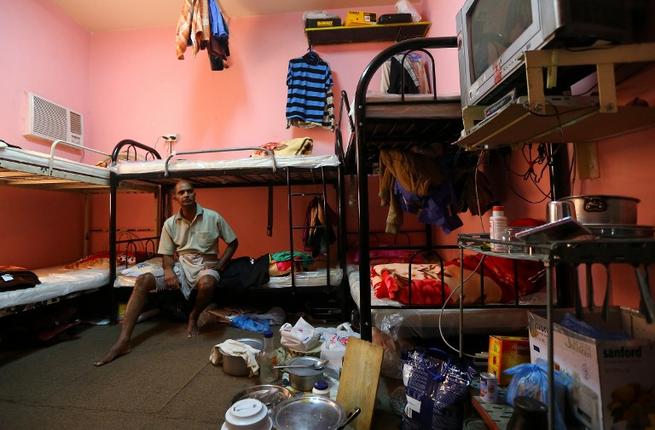QATAR (Web Desk) – Qatar and India have among the highest rates of modern slavery proportionate to its population, according to the latest edition of the Global Slavery Index, with the oil-rich Gulf state ranking as the country with the fifth-highest proportion of slavery, and the burgeoning South Asian power placing fourth-highest on the survey.
The index, compiled by the Walk Free Foundation, finds that in Qatar 1.35 percent of the population is enslaved, a total of 2.24 million at the time the study was put together.
The foundation said the majority of construction workers in the country were semi-skilled or unskilled and vulnerable to exploitation during the recruitment process. This included incurring debts to pay recruitment fees, reliance on their sponsor for residence and legal status and “discrimination from laws that criminalize workers for leaving exploitative situations”.
It said many workers were trapped in a debt cycle, particularly due to the high interest rates on their recruitment loans and the often lower than promised wages paid to them once they arrive in the country.
“Despite substantial international pressure to reform the treatment of migrant construction workers, reports continue to find workers facing conditions that may amount to those of slavery,” the organisation said.
“These include work performed under the threat of penalty or deportation, deprivation of food, inadequate accommodation with limited or no privacy, physical confinement in the work location/labor camp severely restricting freedom of movement, misrepresentation and substitution of types and terms of work, confiscation of identity documents, non-payment, withholding and/or deductions from pay, and unsafe working conditions in extremely high temperatures,” the report found.
The organisation suggested that despite some reforms to the country’s kafala system in 2015 which had not yet been implemented, including regulation governing entry and exit from the country and changing jobs, migrant workers in the country were still dependent on their sponsors.
“The new law allows migrant workers to change employers after their contracts expire or after five years of working for one employer. As the suggested maximum duration of contracts is five years, and the law will not come into force until the end of 2016, it may be 2022 (the year of the World Cup) before an employee can change jobs without permission from their employer,” the report added.













